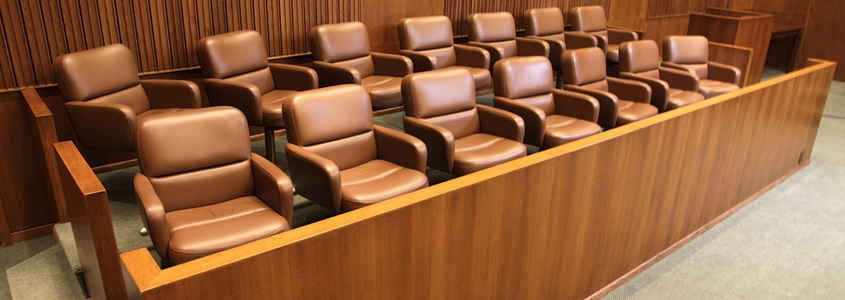“Black Box” or Not? Supreme Court Confronts Racial Bias in Jury Deliberations
Courts nationwide generally treat the jury room as a “black box,” meaning inquiry into jury room discussions is not, in most states, permitted. Jurors can discuss their feelings after the verdict if they want to, but no one can force them to reveal what went on in the jury room. Rules forbidding such inquiry exist to allow jurors to speak candidly during deliberations and to protect the finality of verdicts. However, a case recently argued before the United States Supreme Court could permit challenges to verdicts based on racial bias among jurors during deliberations.
The question in Peña-Rodriguez v. Colorado is whether a defendant is deprived of the constitutional right to an impartial jury under the Sixth Amendment if the trial judge is precluded from questioning jurors regarding deliberations in cases of alleged racial bias. Mr. Peña-Rodriguez was convicted in Colorado of assaulting two teenage sisters in a racetrack bathroom. At trial, the defense presented an alibi witness for Mr. Peña-Rodriguez during the time of the attack. Mr. Peña-Rodriguez was ultimately sentenced to two years of probation and required to register as a sex offender. After the trial, two of the jurors reported to the defense counsel that one juror made racially biased statements during deliberations about Mr. Peña-Rodriguez’s likely guilt and the alibi witness’ lack of credibility because both were Hispanic. Based on a Colorado law barring jurors from testifying about jury deliberations, the trial judge ruled the jurors could not be questioned about their statements to determine whether to order a new trial.
While the question in Peña-Rodriguez is limited to the narrow issue of whether evidence of racial bias is admissible in determining whether to set aside a verdict, a ruling by the Supreme Court could have far-reaching consequences, including opening the door for evidence of bias based on religion, gender and sexual orientation. In California, the impact of a ruling in the case remains to be seen, because unlike Colorado, California Evidence Code Section 1150 permits evidence regarding “statements made, or conduct, or events occurring, either within or without the jury room” that may show misconduct. California courts have interpreted this provision to mean that while evidence of a juror’s thought process is not admissible to impeach a verdict, a juror’s impartiality may be challenged by certain evidence, which judged objectively, would have likely inherently and substantially influenced the juror.
Regardless of how the Supreme Court rules in Peña-Rodriguez, the case highlights how courts are increasingly attempting to address potential racial bias in the American judicial system. It further highlights the importance of using voir dire in racially and ethnically diverse states such as California to select impartial jurors. If evidence of racial bias is developed, it may be necessary to move for a new trial. A decision in Peña-Rodriguez is expected by spring.

